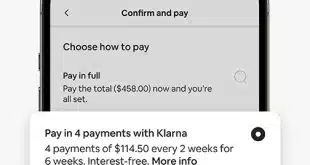Mobile banking, and by extension mobile payments, have rapidly crossed the line from add-on to necessary products for financial institutions, speakers and other sources at a banking-technology expo said on Wednesday. The primary reason mobile has assumed such importance has more to do with fear of attrition than with revenue opportunities, these sources said.
With more and more consumers using smart phones and more reliable wireless networks, mobile financial services are growing at a head-spinning clip, according to research released during the conference. The number of active users has climbed to 17.8 million from 4.9 million two years ago, and will reach 53.1 million by 2013, according to TowerGroup. The volume of mobile transactions—defined as activities ranging from balance look-ups to bill payments—has increased tenfold over the past two years, to 3 billion, and will climb to 9.4 billion within three years, TowerGroup says.
“Two years ago, you wouldn’t have worried about how [mobile banking] could affect your market share,” said Robert Hedges, managing partner at Mercatus LLC, during a presentation at Bank Administration Institute’s Retail Delivery show in Las Vegas. “Now it’s a game-changing opportunity.”
Calling mobile banking a “baseline expectation,” Hedges said banks now risk losing some of their most lucrative customers if they don’t introduce a mobile service. “It’s an imperative like we’ve never seen before,” he told his audience. He presented Mercatus research that showed that one-fifth of customers who had switched primary banks said mobile banking was an important or extremely important factor.
The reason these are valuable customers has to do with their attraction to high tech and the rate at which they interact with their banks, Jeff Dennes, senior vice president and chief digital officer at Huntington National Bank, told Digital Transactions News after a panel discussion at the conference. “Early adopters of technology tend to be more affluent, and probably more profitable,” he says. Until August, Dennes was an executive at USAA Federal Savings Bank with responsibility for that institution’s highly successful mobile remote capture product.
But while banks that adopt mobile services may be able to win over tech-savvy customers, experts disagree over how effective mobile banking is in keeping them. TowerGroup, whose research included interviews with eight financial institutions that have adopted mobile services from San Rafaeil, Calif.-based vendor ClairMail Inc., said in its report that these institutions had seen an increase in 10% to 20% in retention among mobile users. But Hedges cautioned that mobile users tend to be fickle, always looking out for better mobile services at other banks. “Mobile doesn’t make you more sticky,” he told his audience.
Much depends on the customer’s experience with a mobile product, says Dennes. “If my experience is more delightful, then I’m more sticky,” he says. Both he and Hedges say tedious chores like rebuilding biller lists can hinder some switching from service to another, though Hedges sees this is a relatively small obstacle.
Still, the rapid adoption of smart phones in particular has made for a demanding customer base that will seek out the best mobile-banking products they can find, Dennes and others say. “People who go out and buy an iPhone or an Android [phone] expect their financial institutions to have an app,” Dennes notes.
Mobile payments may well be next as a “baseline expectation” these customers will have, Dennes adds. “Person-to-person payments is a huge opportunity for financial institutions,” he says. “It’s not that far in the future.”





